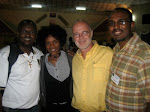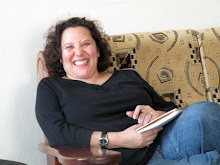 I have handled a lot of various currency this summer; the Ugandan schilling, Rwandan francs, some South African Rand, Burundian francs and, awhile ago, the US dollar. The exchange rate fluctuates with each day, each country, the movement of each market. Some days our own currency is strong where we are, and we seem to get more than we invest. Other days we know that we are getting the weaker end of the exchange, losing with the current climate of the markets. But we must engage in the exchange if we intend to stay somewhere for very long, to have the ability to get what we need (or want) while visiting this new place. So we exchange our currency when we arrive to a new country and hope for the best.
I have handled a lot of various currency this summer; the Ugandan schilling, Rwandan francs, some South African Rand, Burundian francs and, awhile ago, the US dollar. The exchange rate fluctuates with each day, each country, the movement of each market. Some days our own currency is strong where we are, and we seem to get more than we invest. Other days we know that we are getting the weaker end of the exchange, losing with the current climate of the markets. But we must engage in the exchange if we intend to stay somewhere for very long, to have the ability to get what we need (or want) while visiting this new place. So we exchange our currency when we arrive to a new country and hope for the best.When we gathered together for the South African Institute on the first winter evening, we each came with currency in our pockets. Not rand or dollars, but the currency of our own unique story. We each hold this currency very close to our heart, and we are careful how we exchange it and with whom. Our story, and as a result how we see the world, is of utmost value and something we are not eager to squander. There is a fair bit of discernment that happens internally before we share the most true and treasured parts of our story. No one wants to show their local currency and then get a bad exchange rate, and therefore have their own currency devalued. So when we first arrived to this new place and encountered this new place, we have to determine how to engage in the dance of the exchange rate.
We all were gathered by our mutual friend, Marius Brand. There is some safety in knowing him as a fixed point in our fluctuating market. We also could guess that everyone convened cared about the future of the new South Africa and believed that Jesus has something to say on that type of transformation. But we were an extremely diverse group, as I looked around the circle. English and Afrikaans, Colored, Xhosa, Zulu, Xhoi Xhoi and a couple of Americans.
What are the chances that the exchange rate among us would be good, that there would be ample stability for good interactions? Would some trade high and others walk away with less?
This is the risk of true conversation, when we all have our currency in our pocket and make those decisions about how volatile we perceive the market to be.
So we began... Marius offering a word of welcome and I offering a word of context. Next was a good conversation about... conversation. How do we encounter others, how do we determine who we are with and what we assume about them? What happens within us, each one of us, that allow us to share or withhold, to trust others or remain slightly suspicious. And then he laid down the gantlet, he challenged us each to verbalize our own biases, as we looked around the room. He asked us, in reality, to confess the things that might hinder us in connecting with the others gathered around the circle. You can only imagine the thick silence, as we all held our currency in our hands, buried in our pockets. Will I be brave enough to say what I fear, what I assume about you, what fear that you will assume about me?
An amazing thing happened... one man did. He pulled out the currency in his hand and showed it to us. He told us a deeply true nugget of his story, revealing who he understood himself to be in the South African context. And he shared how hard it would be if we were unable to validate this part of himself. And everyone listened intently. And then another one shared. Then another shared. And then... all 25 of us had shared our biases, our fears, our stories. And we discovered there was this common currency between us, a currency that had shared value where none was diminished. None of us left that room getting the sorry end of the exchange rate, as a matter of fact I think we each traded high. I think when we were each brave enough to share our personal currency, our story, with the others we left with an empty pocket and a full heart.
This first night we arrived with our currency and made the necessary exchange. And we found that with the stellar exchange rate that night, we had more than enough for the conversations to come in the days ahead. We cut through superficiality and went to substance, and that held true for the entire time we shared together. This common currency created a rich environment for us to be our most honest selves with one another. We could be open about where we came from, how we see the world, why we misunderstand each other's world... and find ways to connect with one another based on this common currency. I often marveled a the truth-telling and honesty I witnessed that first night in South Africa. Imagine the friendships that grow from such a night?




































